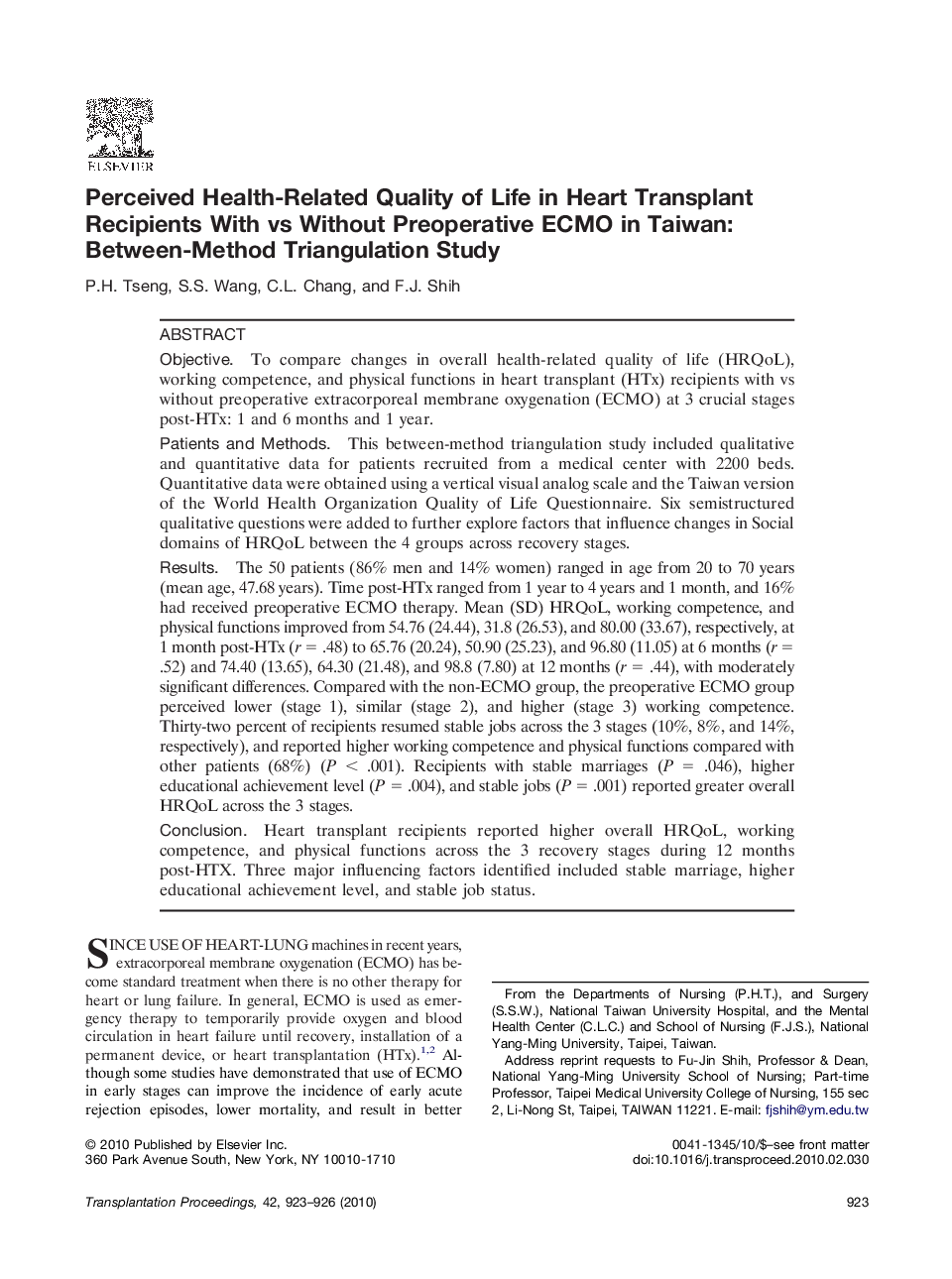| Article ID | Journal | Published Year | Pages | File Type |
|---|---|---|---|---|
| 4258164 | Transplantation Proceedings | 2010 | 4 Pages |
ObjectiveTo compare changes in overall health-related quality of life (HRQoL), working competence, and physical functions in heart transplant (HTx) recipients with vs without preoperative extracorporeal membrane oxygenation (ECMO) at 3 crucial stages post-HTx: 1 and 6 months and 1 year.Patients and MethodsThis between-method triangulation study included qualitative and quantitative data for patients recruited from a medical center with 2200 beds. Quantitative data were obtained using a vertical visual analog scale and the Taiwan version of the World Health Organization Quality of Life Questionnaire. Six semistructured qualitative questions were added to further explore factors that influence changes in Social domains of HRQoL between the 4 groups across recovery stages.ResultsThe 50 patients (86% men and 14% women) ranged in age from 20 to 70 years (mean age, 47.68 years). Time post-HTx ranged from 1 year to 4 years and 1 month, and 16% had received preoperative ECMO therapy. Mean (SD) HRQoL, working competence, and physical functions improved from 54.76 (24.44), 31.8 (26.53), and 80.00 (33.67), respectively, at 1 month post-HTx (r = .48) to 65.76 (20.24), 50.90 (25.23), and 96.80 (11.05) at 6 months (r = .52) and 74.40 (13.65), 64.30 (21.48), and 98.8 (7.80) at 12 months (r = .44), with moderately significant differences. Compared with the non-ECMO group, the preoperative ECMO group perceived lower (stage 1), similar (stage 2), and higher (stage 3) working competence. Thirty-two percent of recipients resumed stable jobs across the 3 stages (10%, 8%, and 14%, respectively), and reported higher working competence and physical functions compared with other patients (68%) (P < .001). Recipients with stable marriages (P = .046), higher educational achievement level (P = .004), and stable jobs (P = .001) reported greater overall HRQoL across the 3 stages.ConclusionHeart transplant recipients reported higher overall HRQoL, working competence, and physical functions across the 3 recovery stages during 12 months post-HTX. Three major influencing factors identified included stable marriage, higher educational achievement level, and stable job status.
